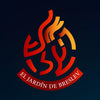Parasha of the Week RSS
Parasha vaetjan
"And I prayed to the Creator at that time, saying, O Lord! You have begun to show your greatness and your mighty hand, for what other God is there in heaven and on earth who can do your works and have your power? I beg you to let me pass so that I may behold the good land that is on the other side of the Jordan..." (Deuteronomy 3:23)As we already mentioned, the name of this Parasha is "Veetjanan" which translates as "I begged" In Hebrew, VeetJaNaN comes from the root "JaNaN" and means "gracious," meaning an undeserved gift. And...
Parasha Debarim
“These are the words that Moses spoke to all Israel in the desert, (...) in the plain, opposite Suf.” (Devarim-Deut 1,1) The book of Devarim is called “the book of reproach”, because Moshe, at the end of his days, He rebukes the people of Israel so that they correct and improve their actions. And what did Moses talk to them about?This is what the verse says (Devarim 1:1): “in the desert, in the plain, opposite Suf”, hinting to them with this the moment in which the person is taken to his grave. And since the person knows that he will...
We can raise our heads, only with the study of the Torah
Parasha Naso (Bamidbar-Numbers 4:21-7:89) "We can lift our heads only through the study of the Torah." "Make a count of the sons of Gershon" In the Midrash (Bemidbar 6,1) it says that it is written (Mishlei 3,15) "She is more precious than pearls, and everything you could desire cannot be compared to her”. Pearls (peninim) always indicate a beginning, as it is said (Ruth 4,7): “This was the case in Israel before.” It is difficult to understand: What does “the beginning” mean when referring to the Torah and the mitzvot, and what evidence does this verse provide that it refers...
Parasha Bamidbar (in the desert)
“Take a census of the entire assembly of Israel according to their families, according to their houses “fatherly” (Bamidbar 1:2) This parashah teaches us about the census taken among the children of Israel to determine their number. The entire Torah is intended to teach us how we should behave. What does the census of the Israelites teach us? Why is each tribe counted separately and not all the tribes together? Likewise, after all the tribes have been counted and their numbers determined, the members of the tribe of Levi are counted separately. The Creator commanded: “But you shall not number...
It all depends on our preparation
Parasha Emor (Vaykra-Leviticus 21,1 - 24, 23) Counting the Omer helps us prepare for Shavuot by counting each day until the holiday with care and desire to receive our Torah. "They shall count 50 days until the day after the seventh Shabbat, and then they shall bring a new grain offering to the Creator." (Vaykra-Leviticus 23,16) It is well known that the wisdom of the Holy Torah is different from other wisdoms, which do not require any prior preparation for study. If a person truly desires to acquire it and for the Torah to change his essence, to purify and sanctify...





